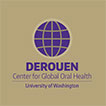TABASAMU Research Team Travels to Kenya

In February 2023, as part of the National Institutes of Health (NIH) grant named "TABASAMU" awarded to the University of Washington (UW) and University of Nairobi (UoN), a team of researchers and professionals embarked on an international trip to Kenya. Read more about TABASAMU Research Team »
UW’s Dr. Frank Roberts presents at KASH conference

This past February, Dr. Frank Roberts from University of Washington's (UW) School of Dentistry, was invited to give a talk at the 2023 KEMRI Annual Scientific and Health (KASH) conference. Read more about KASH Conference »
Trainee Focus Groups Held in Kenya
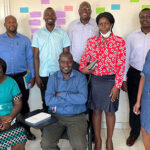
In February 2023, as part of the National Institutes of Health (NIH) D71 TABASAMU grant (1D71TW011823-01) awarded to the University of Washington and University of Nairobi, a series of focus groups were conducted in Kenya to explore the potential trainees' knowledge, attitudes, perceptions, and barriers of oral health research capacity within the country. Read more about Focus groups in Kenya »
International workshop on research methodology in global oral health

The Universidad Continental in Huancayo, Peru, recently hosted a research methodology workshop on oral health, which offered courses in various topics related to dental research. Read more about International Workshop »
Dr. Yan Wang’s work on CHOMP study
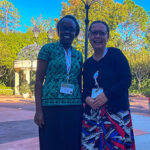
A DeRouen Center collaborator, Dr. Yan Wang, is taking part in the Center’s Children’s Healthy Oral Management Project (CHOMP) grant in Kenya. Read more about CHOMP study »
Grant to assess how HIV affects the occurrence and progression or oral diseases among Kenyan children with HIV/AIDS

Oral diseases are among the most prevalent non-communicable diseases (NCDs) worldwide. Salivary antimicrobial peptides (AMPs) are proteins regulated by our immune system that disrupt the membrane integrity of bacteria. Read more about HIV Study Grant »
Polymorphisms and oral diseases in Thailand
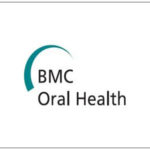
The taste buds in our tongues contain receptor cells that detect food particles dissolved in saliva. G-protein coupled receptors on the surface of those receptor cells have been identified that respond to sweet, savory, or bitter tasting chemicals. Twenty-five different G-protein coupled bitter taste receptors have been identified in humans. Read more about Polymorphisms and oral diseases »
The DeRouen Center for Global Oral Health R56 trip to Lima, Peru

On March 31st, 2022, I flew on a redeye flight to Lima, Peru. This was my first time going to South America and I was very excited to be going to a new continent! My Spanish language skills were and still are severely lacking, so I made sure to download google translate onto my phone. It was a life saver while I was there! On April 1st, I arrived in the capital of Peru in the evening. Read more about Chelsea in Peru »
NIH D71 Grant Stakeholder Analysis Results
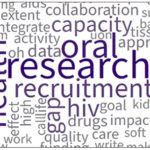
The DeRouen Center has been working on an NIH D71 Planning Grant in Kenya. In February, 2022, a group of researchers including Ana Lucia Seminario, Arthur Kemoli, Immaculate Opondo, Matthew Saxton, and Sara Stanley traveled to four sites in Kenya to meet with stakeholders in oral health and HIV research. Read more about NIH D71 Grant »
DeRouen Center Team Travels to Kenya for D71 Grant
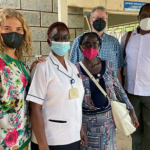
In February 2022, the University of Washington (UW) Timothy A. DeRouen Center team travelled to Kenya as part of our National Institute of Health’s D71 Grant entitled “TABASAMU: A multidisciplinary collaboration on building up research capacity in oral health and HIV/AIDS.” Read more about Kenya D71 Grant »
